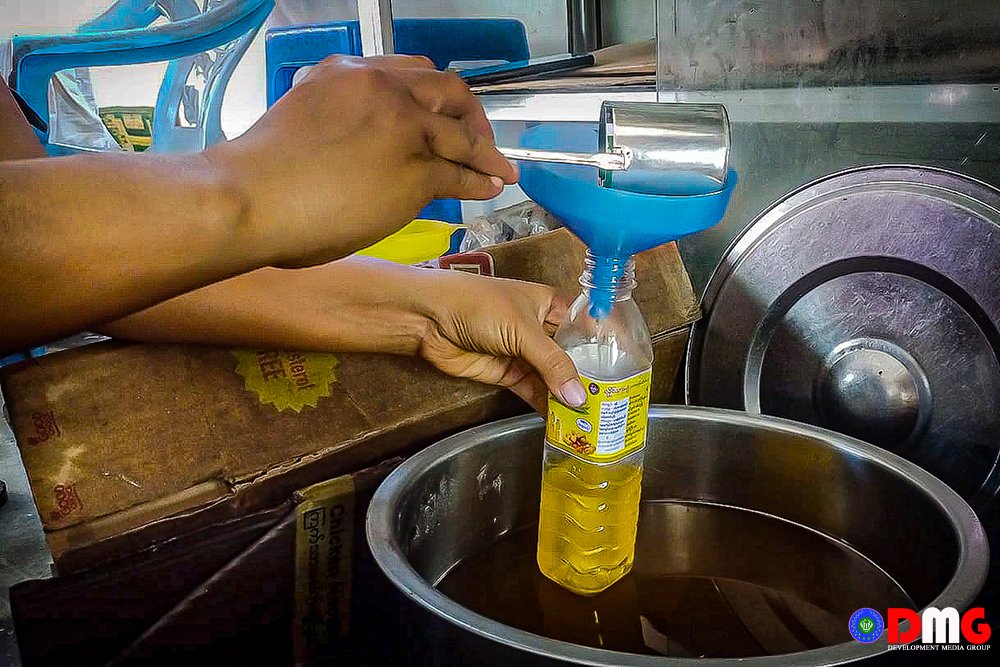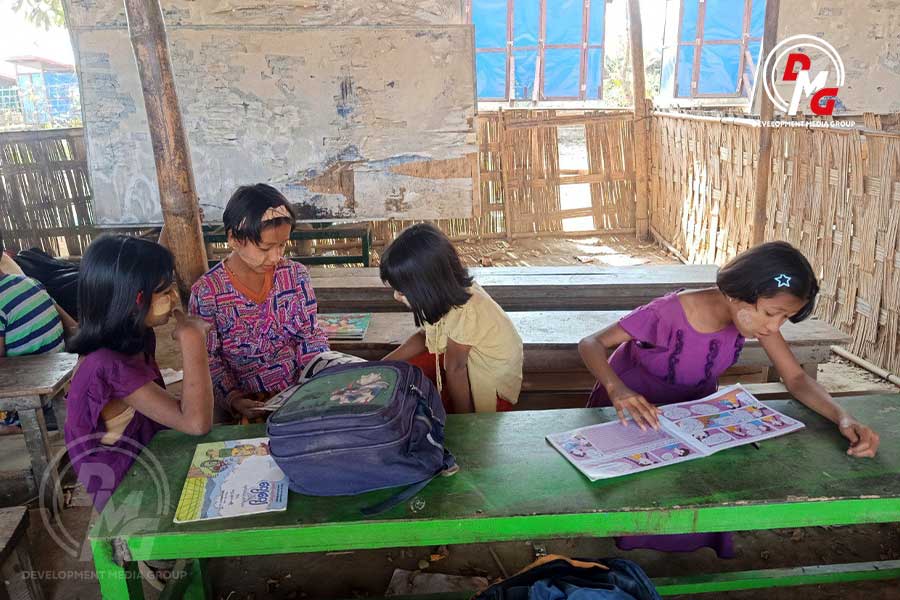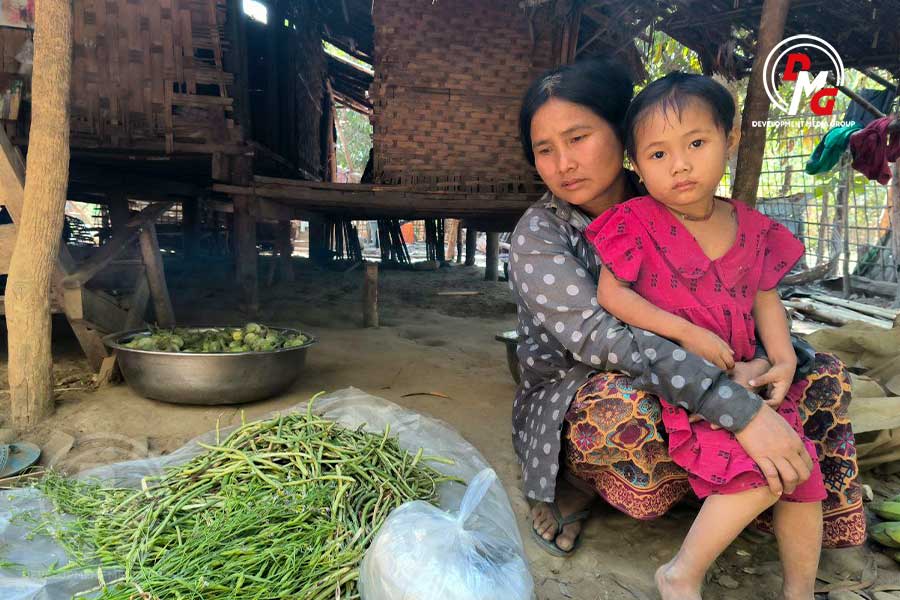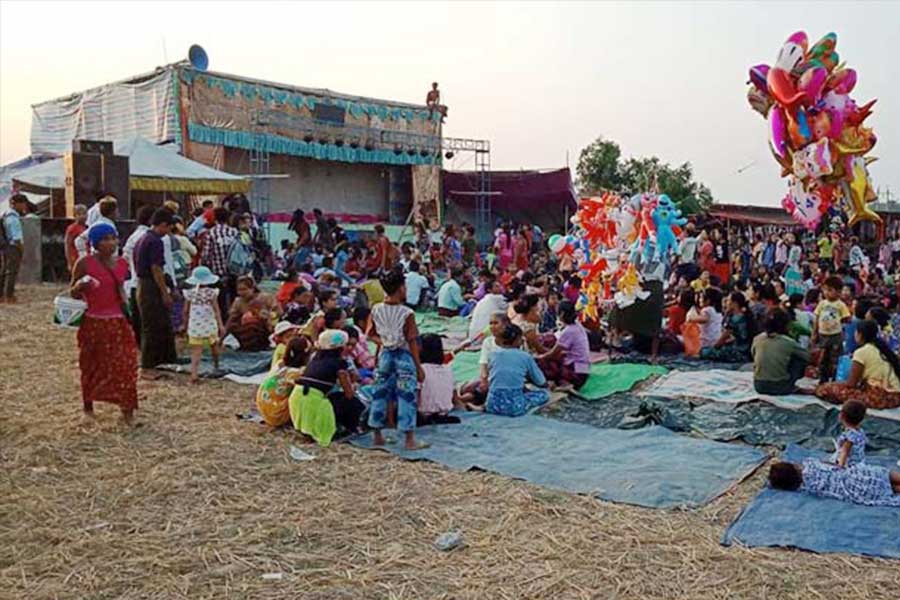- Free schools for IDP children in Arakan State struggle to stay open amid funding shortfall
- Female-headed IDP households in Ponnagyun Twsp struggle as commodity prices surge
- Min Aung Hlaing likely to take State Counsellor role in post-election government formation: Analysts
- Hindus express hope for educational reform under AA administration
- Arakanese zat pwe performers struggle to survive as conflict halts traditional shows
Commerce Ministry limits supply of palm oil
Myanmar’s military regime has limited the supply of palm oil to the market due to declining stocks.
12 May 2022

DMG Newsroom
12 May 2022, Sittwe
Myanmar’s military regime has limited the supply of palm oil to the market due to declining stocks.
While the national demand for palm oil is 2,000 tonnes per day, Myanmar currently has only 18,000 tonnes in stocks, and the supervisory committee for import and distribution of edible oil under the junta’s Commerce Ministry has instructed to supply only 1,000 tonnes, or half of the daily demand, said committee chairman U Myint Cho.
“Importers are trying to import it from Malaysia as they can’t buy it from Indonesia. We have been instructed to reduce the supply to prevent stocks from running out in the meantime,” he said.
The Myanmar Edible Oil Millers Association, however, released a notice on Tuesday seeming to indicate a broader ban on the sale of remaining stocks.
“We only told them to reduce the supply. But merchants have released a notice and banned the sale,” said U Myint Cho.
Edible oil distributors from Arakan State said they could not buy edible oil from oil wholesalers in Yangon on Tuesday and Wednesday.
“We could only buy oil today. Prices have increased slightly. Currently, edible oil is sold for over 70,000 Kyats for 10 viss in Arakan State. We are selling the existing stocks,” said local oil distributor U Hla Maung Thein.
Arakan State does not import palm oil directly from foreign countries, but rather buys from wholesalers in Yangon based on local demand.
Businessman U Khin Maung Gyi said edible oil prices may increase due to a decline in supply, which will ultimately hit low-income families hardest.
“Arakanese businessmen should now find ways to buy it directly [from sellers] instead of relying on distributors from the mainland,” he said.
The price of palm oil has increased after Indonesia, Myanmar’s biggest palm oil supplier, last month announced a ban on exports until further notice, in a move meant to tackle rising domestic prices in the fellow Southeast Asian nation.

















.jpg)